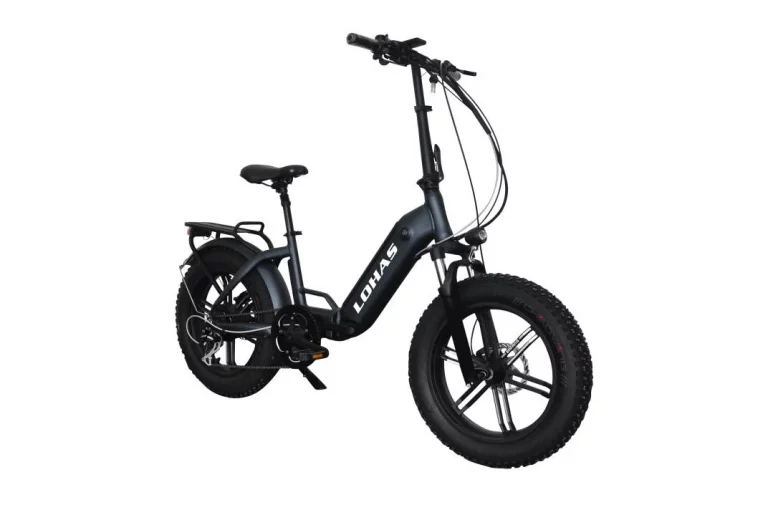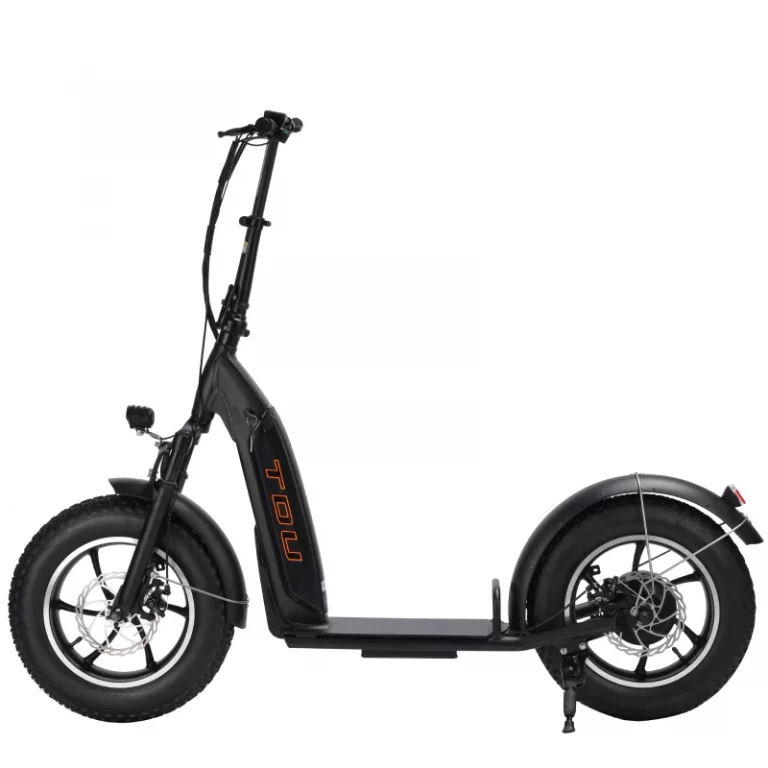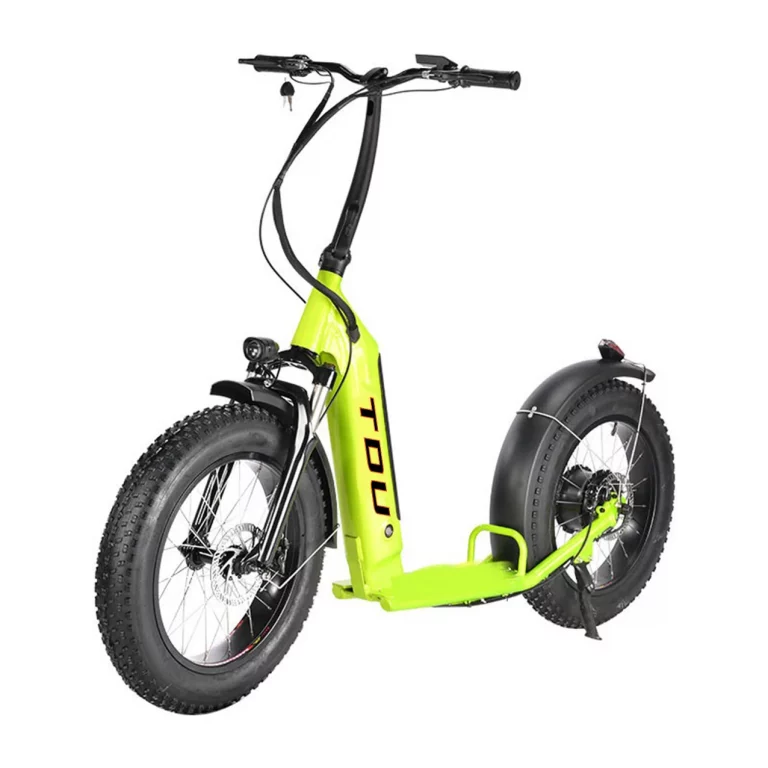Unveiling the Rise of Ebikes
Historical Development of Ebikes
The origin of electric bicycles, often referred to as ebikes, dates back to the late 19th century. While early patents were filed, substantial advancements remained sparse until the latter part of the 20th century when technological progress enabled practical applications. Initially powered by heavy lead-acid batteries, the development has transitioned to lightweight lithium-ion batteries, marking notable advancements. Over time, engineering improvements have refined the design, efficiency, and practicality of ebikes, transforming them into a viable transportation option and a pivotal element of contemporary urban mobility.
Popularity Surge in Urban Areas
Ebikes have experienced meteoric growth in urban environments. Cities worldwide grapple with congested roads and limited parking, amplifying the appeal of ebikes as a swift, convenient, and affordable alternative. The trend is echoed in Europe and Asia, where cycling infrastructure is more mature, but it’s rapidly catching on in North America. The ease of maneuvering through traffic, coupled with the ability to bridge long distances effortlessly, fuels their popularity. This shift is not merely anecdotal but substantiated by surging sales figures and increased public visibility of ebikes on city streets.
Yongkang LOHAS Vehicle Co., Ltd covers an area of more than 18,000 square meters. We have two assemble line, and use advanced manufacturing equipment and techniques to produce high-quality electric scooters and electric bike that meet our strict standards. At the heart of our company is a dedicated R&D team comprising 20 professionals who contribute to e-bike design and innovation. To ensure the highest standards, our Quality Inspection team, consisting of 15 meticulous individuals, thoroughly check e-bike and e-scooter before shipment.
Government Policies Promoting Ebikes
Governments are progressively acknowledging the environmental and social benefits of ebikes by introducing supportive policies. Subsidies and incentive programs reduce the financial barrier for potential buyers. Urban planning initiatives like dedicated bike lanes and bike-sharing schemes promote safe and efficient use of ebikes. Regulations tailored for ebike classification ensure road safety without hampering their utility. These governmental measures signal robust encouragement for citizens to adopt ebikes as a primary mode of transport, thus fostering a cleaner and healthier urban commute ecosystem.
Environmental Benefits of Ebikes
Reduction in Air Pollution
Lower Emissions Compared to Traditional Vehicles
Ebikes significantly mitigate air pollution by emitting fewer pollutants compared to cars and motorbikes. Traditional vehicles emit greenhouse gases and particulates that contribute to climate change and health issues. On the contrary, ebikes produce zero direct emissions during operation, thus presenting an eco-friendly transportation option. The compounded benefit is seen in reduced carbon footprints from thousands of individuals opting for ebikes instead of cars for daily commutes.
Decreased Urban Smog and Its Impact
The increasing use of ebikes significantly diminishes urban pollution, primarily caused by vehicle emissions. By cutting down the number of internal combustion engines on the streets, ebikes play a pivotal role in reducing levels of nitrogen oxides and particulate matter, which are key contributors to urban air pollution. Cleaner air is directly linked to better public health, resulting in fewer respiratory issues and improving the overall quality of life for city residents.
Energy Efficiency and Sustainability
Use of Renewable Energy for Charging
Mainstreaming the use of renewable energy for charging ebikes aligns them with sustainable practices. Solar-powered charging stations and initiatives to integrate ebike chargers with household solar systems stand out. Even without renewables, the energy consumption of ebikes remains a fraction of that used by electric cars, thereby promoting energy efficiency. This sustainable model not only conserves resources but also sets an environmental benchmark for future transportation systems.
Longevity and Recycling Concerns
The sustainability narrative extends to the longevity and recyclability of ebikes. They are designed to have a longer lifespan compared to traditional bicycles, reducing the frequency of replacements. Moreover, the focus on recyclable materials for batteries and parts helps in minimizing environmental waste. By addressing recycling concerns, the ebike industry ensures that its environmental footprint is mitigated even at the product’s end of life.
Health and Lifestyle Advantages
Enhancing Physical Fitness
Encouraging Active Commuting
Ebikes provide a gateway to active commuting, blending convenience with physical activity. Riders can engage in moderate exercise by pedaling, which significantly contributes to cardiovascular health. Unlike traditional bicycles, the motorized assistance ensures that riders of varying fitness levels can commute without being deterred by physical exertion. Thus, ebikes serve as a catalyst for integrating physical activity into daily life.
Reducing Sedentary Lifestyles
The user-friendly nature of ebikes addresses the sedentary habits common in city environments. By overcoming obstacles like long distances and steep inclines, ebikes facilitate active commuting. This change helps reduce the prolonged inactivity often linked to car travel. Consistent use of ebikes promotes physical activity and can significantly enhance overall fitness and health.
Mental Health Improvements
Stress-Relief through Physical Activity
Riding an ebike provides an excellent outlet for stress relief through physical activity. The rhythmic motion of cycling, combined with the choice to exert just the right amount of physical effort, enhances mood and reduces anxiety. The outdoor exposure while commuting or touring on an ebike fosters mental clarity and a sense of freedom, which is particularly beneficial for urban residents.
Social Benefits and Community Building
The use of ebikes fosters community engagement and social interaction. Bike lanes and trails often become communal areas where people meet and interact, promoting social cohesion. Group rides and cycling events further enhance community participation. Beyond individual benefits, ebikes contribute to building a socially connected and supportive urban ecosystem, making cities more livable and friendly.
Technological Innovations Driving Adoption
Advances in Battery Technology
Longer Range and Faster Charging Times
Modern ebike batteries have undergone substantial advancements, enabling longer range and faster charging times. Early models limited riders to short distances, but present-day ebikes boast ranges that can comfortably cover urban and suburban commutes. Lithium-ion batteries, known for their lightweight and efficiency, serve as standard powerhouses, ensuring consistent performance over extended periods. Enhanced battery management systems now allow for rapid charging, reducing downtime and making ebikes more convenient for everyday use. Consequently, these improvements have propelled the adoption of ebikes by alleviating concerns over range and recharging.
Safety Enhancements and Durability
Technological advancements have also made ebikes safer and more durable. Modern ebikes are now equipped with enhanced braking systems, such as hydraulic disc brakes, which provide superior stopping power and improved control. Frame materials have also seen significant improvements, with the use of high-strength aluminum and carbon fiber boosting durability without adding unnecessary weight. Moreover, integrated lighting systems and reflective elements increase visibility, which is essential for safe urban commuting. These innovations collectively enhance the reliability and longevity of ebikes, thus earning the trust of potential users.
Smart Features and Connectivity
Integration with Mobile Apps
The incorporation of smart features and connectivity has been a game-changer for ebikes. Through integration with mobile apps, riders can monitor various aspects of their ebike’s performance and health. Apps provide real-time data on battery level, speed, distance traveled, and even suggest optimal routes based on terrain and battery life. This seamless connectivity not only enhances user experience but also aids in predictive maintenance by flagging potential issues before they become serious problems. The ability to have this level of interaction and control has made ebikes an attractive option for tech-savvy commuters.
Real-Time Navigation and Performance Tracking
Real-time navigation systems built into ebike designs offer unparalleled convenience for urban riders. These systems, often integrated with major navigation apps like Google Maps, provide turn-by-turn directions and traffic updates, helping riders avoid congested routes. Additionally, performance tracking features allow riders to evaluate their riding metrics, such as calories burned and elevation gained, fostering a sense of achievement and encouraging regular use. The amalgamation of navigation and performance tracking positions ebikes as a leading choice for efficient, informed commuting.
Economic Impacts of Ebike Adoption
Cost Savings for Consumers
Comparison with Car Ownership Expenses
The economic benefits of ebikes become evident when compared to car ownership expenses. Ebikes require a significantly lower initial investment compared to purchasing a car. Moreover, they forgo the need for fuel, extensive maintenance, and expensive repairs. Insurance costs for ebikes are minimal, if necessary at all, in contrast to the substantial insurance premiums for motor vehicles. By choosing an ebike over a car, consumers can save a considerable amount of money annually, making it a financially prudent alternative.
Maintenance and Long-Term Savings
When it comes to upkeep, ebikes are naturally easier and less costly to maintain compared to cars. The main maintenance tasks include regular tune-ups and occasional battery replacements, which are not as financially burdensome. Over time, these savings add up, making ebikes a cost-effective solution in the long run. For both individuals and families, these savings can be allocated to other essential expenses or investments, highlighting the economic advantages of adopting ebikes.
Growth Opportunities in the Ebike Industry
Job Creation in Manufacturing and Sales
The rise of ebikes has spurred significant job creation within the manufacturing and sales sectors. As the demand for ebikes increases, manufacturers scale up production, necessitating a growing workforce. Jobs in ebike assembly, quality control, and component manufacturing represent a substantial portion of this growth. Retail outlets specializing in ebikes also benefit, creating sales and service positions. This influx of employment opportunities stimulates local economies and nurtures industry-specific skills within the workforce.
Impact on Local Businesses
Local businesses also stand to benefit from the proliferation of ebikes. Bike-friendly establishments attract more customers, as cyclists seek convenient stops during their commutes. Cafes, shops, and service stations that cater to ebike users often see increased patronage, driving economic activity. Furthermore, bike rental and sharing services capitalize on the trend, offering tourists and residents an eco-friendly mode of exploration and commuting, thereby enriching the local tourism experience and economy.
By embracing the technological innovations and economic opportunities presented by ebikes, societies can forge a path towards a more sustainable, healthier, and economically robust future.
Challenges and Future Prospects
Overcoming Infrastructure Barriers
Developing Bike-Friendly Cities
The development of bike-friendly cities is crucial for the success of ebikes. Urban planners must focus on cycling infrastructure that meets the specific needs of ebikes. This involves establishing dedicated bike lanes to guarantee safe travel for cyclists, particularly in high-traffic zones. Moreover, integrating ebike parking solutions into public areas is essential to facilitate easy access and prevent theft. By adopting comprehensive cycling infrastructure, cities can improve the convenience and safety of ebike commuting, thus encouraging a greater number of people to embrace this eco-friendly mode of transportation.
Ensuring Safe Riding Environments
The widespread adoption of ebikes necessitates a focus on ensuring safe riding environments. Efforts should be made to educate both ebike riders and other road users about shared road safety practices. This includes clear signage, rider training programs, and public awareness campaigns about the rules of the road. Moreover, improving road maintenance to eliminate hazards like potholes and ensuring adequate lighting on bike paths contributes to safer commutes. By addressing these safety concerns, cities can create an environment where ebike riders feel confident and secure, further promoting their use.
Addressing Regulatory Hurdles
Standardizing Regulations Across Regions
For ebikes to become a global transportation solution, standardizing regulations across regions is crucial. Discrepancies in laws governing ebike usage can create confusion and deter potential users. A unified regulatory framework that defines ebike classifications, permissible speeds, and safety standards would enhance consistency and compliance. This standardization not only simplifies the adoption process for manufacturers and consumers but also ensures that safety protocols are universally upheld, fostering a safe and predictable environment for ebike users.
Addressing Concerns Related to Speed Limits
Another regulatory hurdle involves addressing concerns related to speed limits for ebikes. There is a need to strike a balance between preserving the efficiency of ebikes and maintaining road safety. Implementing speed limits that reflect urban and rural contexts can help in mitigating accidents. Additionally, enforcing these regulations through appropriate measures such as speed governors or geo-fencing technology on ebikes can ensure compliance. By thoughtfully addressing speed-related concerns, policymakers can safeguard both riders and pedestrians, clearing the path for broader ebike adoption.
Encouraging Sustainable Practices Through Ebikes
Promoting Community Awareness Initiatives
To maximize the environmental benefits of ebikes, promoting community awareness initiatives is essential. Public education campaigns can highlight the ecological advantages of using ebikes, such as reduced carbon footprints and decreased reliance on fossil fuels. Workshops, seminars, and online resources can be deployed to inform citizens about the practicalities of ebike use and maintenance. Furthermore, community-led events such as ebike rallies and “ride to work” days can create a culture of sustainable commuting. These efforts drive community-wide engagement and support for ebike adoption, fostering a collective move towards cleaner transportation.
Fostering Collaboration Between Sectors
Fostering collaboration between sectors is vital for the sustained promotion of ebikes. Governments, private companies, and non-profit organizations can work together to create comprehensive strategies that facilitate the use of ebikes. This partnership can lead to the establishment of more charging stations, subsidies for ebike purchases, and the development of secure parking facilities. Additionally, businesses can incentivize employees to commute with ebikes through benefit programs and ensure workplace facilities accommodate ebike riders. Collaborative efforts ensure a cohesive and supportive framework, making ebikes a more viable and attractive option for daily transportation.
By addressing these challenges and fostering proactive community and sector-wide initiatives, ebikes can play a pivotal role in transforming modern transportation and advancing sustainable practices.
As one of the famous brands in the production of electric bicycles and scooters, Yongkang LOHAS Vehicle Co., Ltd is committed to the research and development and manufacturing of related products. LOHAS Vehicle is a modern integrated enterprise specializing in the design, manufacturing, and distribution of electric bicycles and electric scooters, dedicated to the production of high quality electric bicycles and electric scooters.








